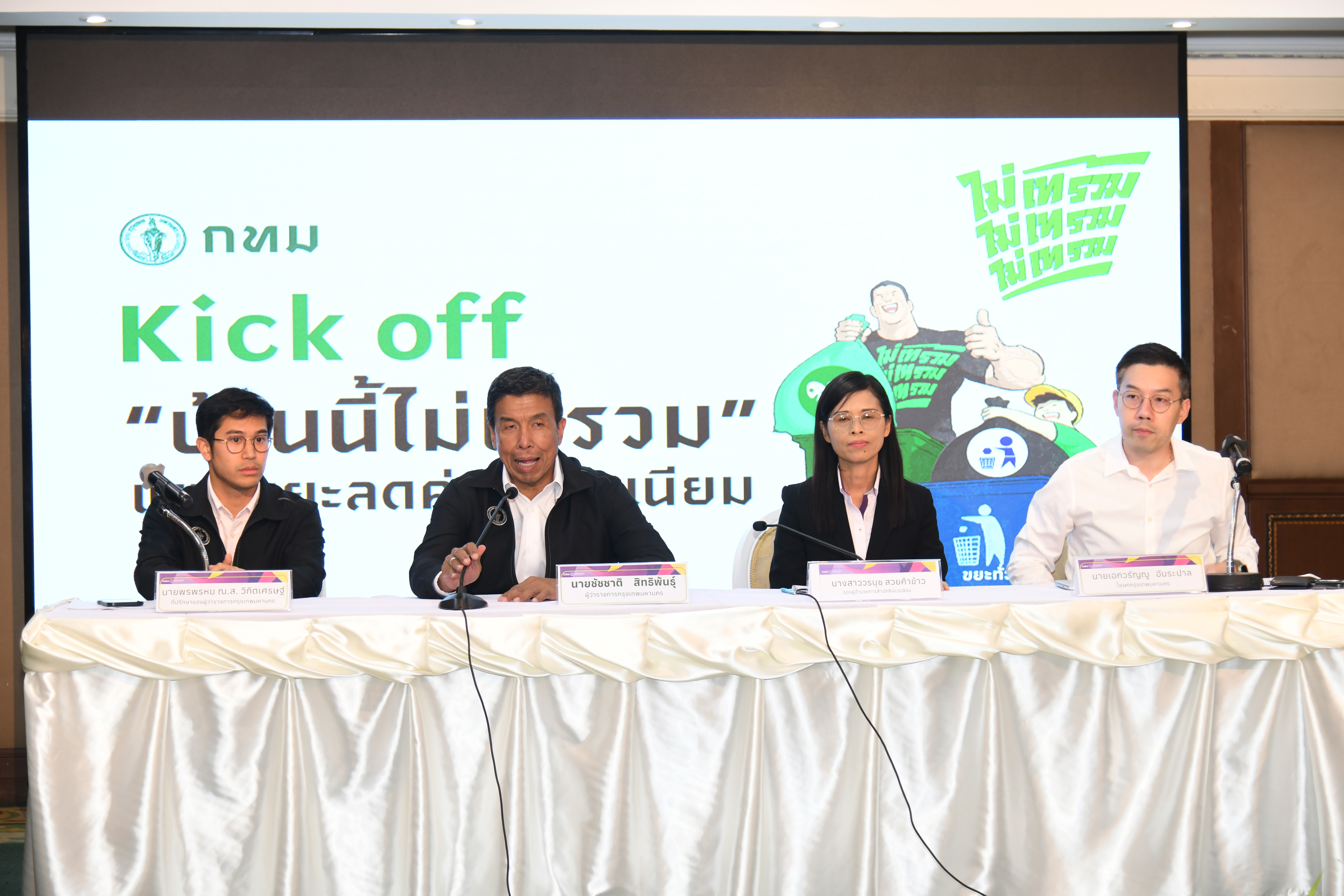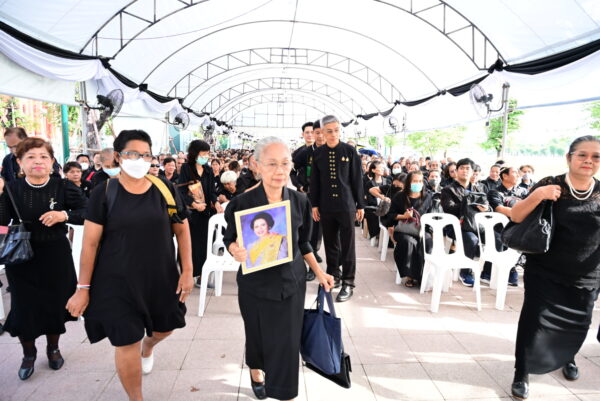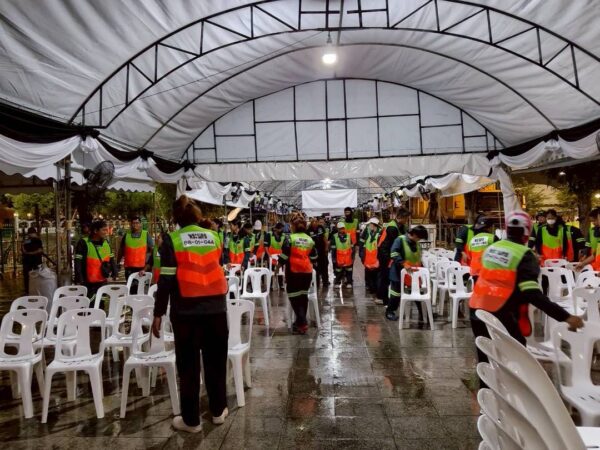
Today (January 14, 2025) at 12:00 PM, Bangkok Governor Chadchart Sittipunt, alongside his advisor, Mr. Pornprom Vikitsreth, and Ms. Woranuch Suaykhaokhao, Deputy Director of the Department of Environment, officially launched the registration for the “No Mixed Waste: Less Trash, Lower Fees” program via the BKK Waste Pay application. This initiative supports Bangkok’s new waste management regulations by offering residents a 20-baht reduction in their monthly fee for separating waste. Residents are assured that separated waste will not be mixed during collection.
Bangkok recently revised its waste management fee regulations to encourage residents to separate waste at the source. Approved on October 30, 2024, by the Bangkok Metropolitan Council, the updated regulations will take effect 180 days after being published in the Royal Gazette, which is expected to be around late 2025.
“Bangkok’s waste crisis significantly affects both environmental quality and municipal budgets. Currently, BMA collects and disposes of 9,000-10,000 tons of waste daily, while only 4,000 tons are reused at the source. This highlights the urgent need for action,” said the Governor.
Waste Fee Structure Under the New Regulation
- Residential Homes (up to 20 liters or 4 kg of waste per day):
If not separated: 60 baht/month (30 baht for collection, 30 baht for disposal)
If separated and registered: 20 baht/month (10 baht for collection, 10 baht for disposal) - Moderate Waste Generators (20 liters–1 cubic meter or 4–200 kg per day):
120 baht per 20 liters (60 baht for collection, 60 baht for disposal) - Large Waste Generators (over 1 cubic meter or 200 kg per day):
8,000 baht per cubic meter (3,250 baht for collection, 4,750 baht for disposal)
For group 2 and 3, waste separation and recycling efforts will help reduce the volume sent to disposal sites, resulting in lower fees.
Tackling Bangkok’s Waste Crisis
Bangkok generates 9,000–10,000 tons of waste daily but only about 4,000 tons are recycled. Despite efforts, a significant volume still requires disposal. To address this, Bangkok has introduced policies focusing on sustainable waste management. These include:
Source Separation: Encouraging individuals and organizations to separate waste at the source.
Model Districts: Creating district-level examples of effective waste separation to inspire and encourage public participation.
The new waste management regulation combines economic and legal measures to motivate residents and communities, especially smaller sources like households, to take part in waste separation efforts.
Registration for the “No Mixed Waste” Program
The Environment Department, BMA has prepared a system to facilitate fee payments for registered participants. Registration is divided into two categories:
1.Individual Registration:
For single homes, townhouses, or condominiums without a juristic person generating up to 20 liters or 4 kg of waste daily, registration can be done via the BKK Waste Pay app, its website, or in person at the district office.
Required documents: House ID (11 digits), name, phone number, and photos of separated waste (food, recyclable, hazardous, and general waste).
Registered homes will receive free food waste bags for the first year, with inspections conducted every three months.
- Group Registration:
For communities, housing estates, or condominiums with a juristic person, generating no more than 20 liters of waste daily per unit, group representatives must register with the district office starting August 1, 2025, and provide meeting minutes, House IDs, and proof of waste separation.
What Happens to Separated Waste?
Bangkok has systems to handle all types of separated waste:
- Food Waste: Processed into compost, biofertilizer, or animal feed. Alternatively, place food scraps in a green bag, and dispose of in the designated bin for scheduled collection by the district office.
- Recyclables: Sell to shops or scrap collection trucks, or donate through the district’s waste collection programs or dedicated events.
- Hazardous Waste: Dispose of in orange bins or hand over to waste trucks. Examples include batteries, light bulbs, or expired medications.
- General Waste: Secure in transparent bags and dispose of in blue bins.
Event Highlights
Today’s event included two panel discussions: “Preparing for the New Ordinance: Sustainable Waste and Sewage Management for Bangkok” and “Techniques to Reduce Waste and Lower Fees.” The speakers included experts from Chulalongkorn University, representatives from the Securities and Exchange Commission, and representatives from the Environment Department, BMA. This event also featured exhibition booths showcasing waste management solutions, recycling networks, and innovations like composting bins, black soldier fly waste disposal systems, and advanced food waste processing technologies.
For more information and to download the BKK Waste Pay app, visit:
iOS: BKK Waste Pay App Store
Android: BKK Waste Pay Google Play




